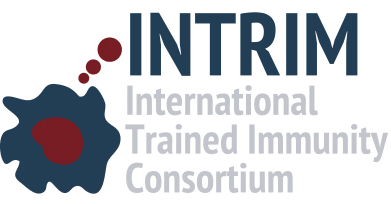Centre d’Immunologie de Marseille-Luminy (CIML), Marseille, France and DFG-Center for Regenerative Therapies Dresden (CRTD), Dresden, Germany
Research topic
HSC are long lived, quiescent and rare cells that can give rise to the entire blood system under steady state. Since some years, we have investigated the mechanisms that control self-renewal and differentiation of hematopoietic stem cells. Resolving a long debate over instructive versus permissive action of cytokines on HSC fate we have shown that the cytokine M-CSF could instruct, within the first division, early commitment of HSC to the myeloid lineage (Mossadegh-Keller*, Sarrazin* et al, Nature 2013). This commitment is controlled by an integrated cytokine/transcription factor circuit where variation in cell intrinsic sensitivity is set by the transcription factor MafB that renders stimulation by M-CSF instructive (Sarrazin et al. Cell 2009). The mechanism also has clinical significance, since M-CSF stimulated myelopoiesis can protect HSC transplant recipients from opportunistic infections (Kandalla et al., JEM 2016).
Recently, several studies have demonstrated that mature myeloid cells can develop a better response upon re-stimulation with the same or even different pathogens. This process has been called “trained immunity” and is driven by epigenetic modifications leading to changes in gene expression. Our and the work of others shows that HSC can also directly respond to an infection by engaging emergency hematopoiesis. It has not been investigated so far, however, whether long-term hematopoietic stem cells (LT-HSC) can remember previous stimulations and present hallmarks of trained immunity similar to downstream progeny. This question is of critical importance, since any long-term effects of innate immunity will have to reside in long-lived cells such as HSC.
To address this, our group is studying training of HSC in response to bacterial PAMPs in a model of infection with Pseudeumonas aeroginosa upon bone marrow transplantation. We observed that transient immune stimulation instructed HSC with a long-term ability to mount improved innate immunity against P.aeroginosa. We are currently investigating the underlying molecular mechanisms of trained immunity in long-term HSC and will extend the study to additional stimuli and pathogens.
Group leaders
- Michael Sieweke
Group members
- Sandrine Sarrazin
- Bérengère Delaval
- Prashanth Kandalla
- Julien Maurizio
Selected publications
- de Laval B and Sieweke MH, Trained macrophages support hygiene hypothesis, Nature Immunology 18(12):1279-1280 (2017)
- Kandalla et al, M-CSF improves protection against bacterial and fungal infections after hematopoietic stem/progenitor cell transplantation, J Exp Med, 213 (11) 2269-2279 (2016)
- Sandrine Sarrazin and Michael H. Sieweke, Eosinophils and Mast Cells apart, Nature Immunology, 17(6) :609-11 (2016)
- Soucie et al, Activation of Self-Renewal Gene Network on a Macrophage-Specific Enhancer Platform, Science, 351(6274) :aad5510 (2016)
- Sieweke MH, Waddington’s Valleys and Captain Cook`s Island, Cell Stem Cell, 16(1) :7-8 (2015)
- Sieweke MH, Allen JE, Beyond Stem Cells : self-renewal of differentiated macrophages, Science, 22;342(6161) :1242974 (2013)
- Mossadegh-Keller N, Sarrazin S, et al, M-CSF instructs myeloid lineage fate in single haematopoietic stem cells, Nature, 9 ;497(7448) :239-43 (2013 May)
- Geissmann et al, Development of monocytes, macrophages and dendritic cells, Science, 327(5966):656-61 (2010)
- Aziz et al, MafB/c-Maf deficiency enables self-renewalof differentiated functional macrophages, Science, 326(5954):867-71 (2009)
- Sarrazin et al, MafB restricts M-CSF dependent myeloid commitment divisions of hematopoietic stem cells, Cell, 138(2):300-13 (2009)
Financial support
- ERC Advanced Grant
- Alexander von Humboldt Professorship
- French Agency for research ANR
- Fondation ARC (French Cancer Charity)
- EU H2020 ERA-NET
